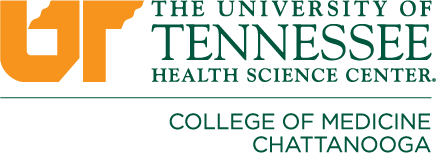Surgical Critical Care Curriculum and Goals
Surgical critical care deals with complex surgical and medical problems in critically ill surgical patients. Institutions sponsoring graduate educational programs in surgical critical care must provide the educational, clinical, and administrative resources to allow residents to develop advanced proficiency in the management of critically ill surgical patients, to develop the qualifications necessary to supervise surgical critical care units, and to conduct scholarly activities in surgical critical care. The educational program must be an integral part of and enhance an accredited core program in general surgery.
The surgical critical care program must enable the resident to acquire an advanced body of knowledge and level of skill in the management of critically ill surgical patients in order to assume a leadership role in teaching and in research in surgical critical care.This advanced body of knowledge and level of skill must include the mastery of (1) the use of advanced technology and instrumentation to monitor the physiologic status of children or adults of both sexes, including those in the neonatal, pediatric, child-bearing, or advanced years; (2) organizational and administrative aspects of a critical care unit; and (3) ethical, economic, and legal issues as they pertain to critical care.
Residents completing a surgical critical care residency program will be expected to:
- teach the specialty of surgical critical care.
- undertake investigations into the various areas of surgical critical care, such as new instrumentation, identification of important physiologic parameters, evaluation of pharmacologic agents in critically ill patients, or health outcomes and/or health policy issues related to surgical critical care.
- administer a surgical critical care unit and appoint, educate, and supervise specialized personnel, establish policy and procedures for the unit, and coordinate the activities of the unit with other administrative units within the hospital.
Didactic Curriculum
The program must provide the opportunity for residents to acquire advanced knowledge of the following aspects of critical care, particularly as they relate to the management of patients with homodynamic instability, multiple system organ failure, and complex coexisting medical problems:
- Cardiorespiratory resuscitation
- Physiology, pathophysiology, diagnosis, and therapy of disorders of the cardiovascular, respiratory, gastrointestinal,genitourinary, neurological, endocrine, musculoskeletal, and immune systems, as well as of infectious disease
- Metabolic, nutritional, and endocrine effects of critical illne
- Hematologic and coagulation disorder
- Critical obstetric and gynecologic disorder
- Trauma, thermal, electrical, and radiation injurie
- Inhalation and immersion injurie
- Monitoring and medical instrumentation
- Critical pediatric surgical condition
- Pharmacokinetics and dynamics of drug metabolism and excretion in critical illne
- Ethical and legal aspects of surgical critical care
- Principles and techniques of administration and management
- Biostatistics and experimental design
Clinical Components
The program must provide supervised training that will enable the resident to gain competence in the performance and application of the following critical care skills:
- Respiratory: airway management, including endoscopy and management of respiratory system
- Circulatory: invasive and noninvasive monitoring techniques, including trans-esophageal and pericardial cardiac ultrasound and application of transvenous pacemakers; computations of cardiac output and of systemic and pulmonary vascular resistance; monitoring electrocardiograms and management of cardiac assist device
- Neurological: the performance of complete neurological examinations; the use of intracranial pressure monitoring techniques and of the electroencephalogram to evaluate cerebral function; application of hypothermia in the management of cerebral trauma
- Renal: the evaluation of renal function; peritoneal dialysis and hemofiltration; knowledge of the indications and complications of hemodialysi
- Gastrointestinal: utilization of gastrointestinal intubation and endoscopic techniques in the management of the critically ill patient; application of enteral feedings; management of stomas, fistulas, and percutaneous catheter devices
- Hematologic: application of autotransfusion; assessment of coagulation status; appropriate use of component therapy
- Infectious disease: classification of infections and application of isolation techniques, pharmacokinetics, drug interactions, and management of antibiotic therapy during organ failure; nosocomial infections; indications for applications of hyperbaric oxygen therapy
i. Nutritional: application of parenteral and enteral nutrition; monitoring and assessing metabolism and nutrition
ii. Monitoring/bioengineering: use and calibration of transducers, amplifiers, and recorder
iii. Miscellaneous: use of special beds for specific injuries; employment of pneumatic
antishock
garments, traction, and fixation devices


